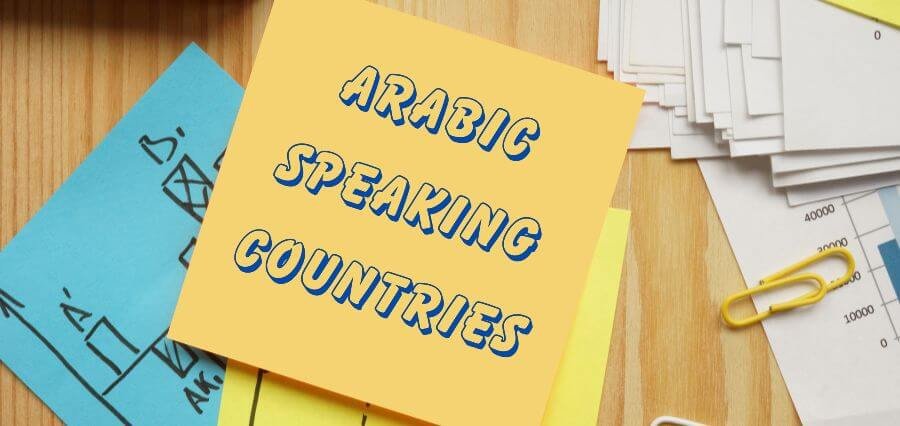By 2025, the spotlight is increasingly coming to rest upon arabic speaking countries, not only due to their past and richness of culture but also due to their increasing roles in international economies, educations, technology, and diplomas. They, united by a shared language heritage, are increasingly playing significant roles in shaping stories of world cooperation and development.
Arabic speaking countries is a phrase applied to an heterogeneous set of states scattered around the Middle East and North Africa, ranging from Morocco in the west to Oman in the east. As a state or widely spoken language, Arabic unites the nations as a linguistic block that promotes economic cooperation, cultural exchange, and political alignment in vital regional and international decisions.
Economic Trends Redefining Arabic Speaking Countries
A decade ago, arabic speaking countries were long identified as oil-exporting nations. Today, Saudi Arabia, the United Arab Emirates, and Qatar are among leaders driving mass-scale innovation in renewable energy, AI-based industries, and fintech. These economic transitions not only reflect internal growth but also open up new channels for foreign investment and international alliances.
Egypt and Algeria, the world’s two biggest arabic speaking nations, are using their population to build robust manufacturing, IT, and science talent pools. Start-up hubs in places like Cairo and Dubai are becoming hotbeds of innovation and investment, where foreign venture capitalists dig for the next frontier market behemoth.
Education and Innovation Push Arabic Speaking Countries Forward
One of the greatest things that have happened in arabic speaking countries is the fantastic revolution of education and adoption of technology. There is a huge investment by the government in digitalizing education in literacy and STEM to prepare future generations to have the global knowledge economy.
The Vision 2030 program in Saudi Arabia, for example, is embedding restructuring education as an economic reform. The UAE, on the other hand, has inserted coding into national school programs and is opening AI universities. These actions represent a long-term commitment to creating intellectual capital and maintaining momentum.
Besides this, regional cooperation is also being strengthened with student exchange programs and Arab-language scholarly forums, making it easier for greater cross-border cooperation among arabic speaking countries and increasing their international profile.
Culture has for centuries been the symbolic core of arabic speaking countries, whose literature, arts, music, and film have enriched the world’s cultural heritage. But now, that soft power is being strategically utilized in an effort to shape global opinion.
Major film festivals in Cairo and Marrakech, architectural exhibitions in Abu Dhabi, and literary awards presented in Beirut are encouraging greater understanding of Arabic culture. In the meantime, satellite channels like Al Jazeera persist in setting international debate in the context of Arabic awareness.
By investing in cultural diplomacy, arabic speaking countries are building closer connections to the surrounding society and world at large, and making sure that influence is as much about identity, ideas, and narrative as it is about GDP or power.
First Arabic Speaking Countries to Adopt Climate Innovation
Whereas climate change hangs over arid and dry territories, arabic speaking countries are leading sustainable development. Morocco has led in solar power, with the world’s largest concentrated solar plant. The UAE aims to become net-zero by 2050 and is leading most of the clean energy projects in Africa and Asia.
By achieving economic development in unison with the proper management of the earth, arabic speaking countries are not only securing their own destiny but are also emerging as the leading drivers of global climatic solutions. They are increasingly contributing at COP forums and world environmental frontiers, with long-lasting policy mechanisms emerging internationally renowned.
Youth Leading Change in Arabic Speaking Countries
Over 60% of the people in the majority of arabic speaking countries are below the age of 30. The youth population pose issues as much as they offer great opportunities. Governments are now setting policies that are geared towards generation of jobs, entrepreneurial stimulation, and gender inclusion.
From Jordanian incubators to Tunisia’s start-up law, these countries are making innovation-led futures a priority. The emerging tide of young Arab influencers, technology start-ups, and educators are remaking the reputation of arabic speaking countries both within and beyond the Middle East.
Youth empowerment has become not only a social goal but a necessary economic imperative. And with this assertive and home-grown digital generation, arabic speaking countries are opening up fresh vistas of imagination and resistance.
Geopolitical Function of Arabic Speaking Countries Globally
With the globalising, rapidly polarising world, arabic speaking countries are emerging as balancing powers in reconciliation and diplomacy. Whether it is brokering East-West commerce or mediating Sudanese peace negotiations, the nations are playing high-stakes geopolitics in a more mature manner.
Qatar’s diplomatic leadership in the global arena, the African partnerships of the UAE, and Egypt’s regional leadership in peacebuilding all emphasize the multi-dimensional role of arabic speaking countries. Their continental location as a gateway between continents makes them strategically significant for regional and global policy discourse.
Conclusion: A New Global Chapter for Arabic Speaking Countries
As 2025 progresses, the “world story” of arabic speaking nations is being rewritten. They are no longer seen only through prehistoric histories of the past or a single industry. They are becoming examples of contemporaneity, power, and regional cohesion.
From education reform and innovation to cultural expression and climate leadership, arabic speaking countries are demonstrating how a shared language can be the launching pad for a shared future of development and prosperity. With a rich blend of tradition and transformation, their trajectory is one the world cannot afford to miss.
As the world shifts towards more new growth poles, arabic speaking countries are on the rise—not as separate countries but collectively—ready to drive, mold, and inspire globally.
Read More: Top Arab Business Trends to Watch in 2025




